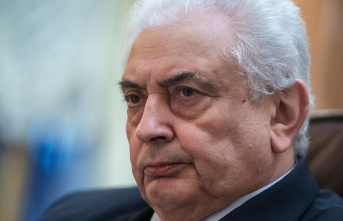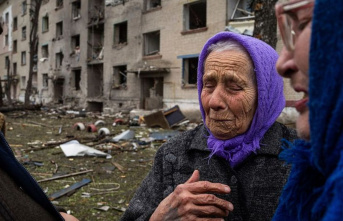Because of protests against a planned pension reform, there is a risk of train chaos, flight cancellations and mass demonstrations in France this Thursday. The media is already talking about a "black Thursday". Up to 750,000 people are expected to take part in strikes and demonstrations against what is probably President Emmanuel Macron's most important project. 10,000 police officers and gendarmes have been mobilized nationwide.
The middle government wants to gradually raise the regular retirement age from 62 to 64 years. In addition, the number of payment years required for a full pension should increase more quickly. A number of individual systems with privileges for certain professional groups are to be abolished.
Currently, the retirement age is 62 years. In fact, however, retirement begins later on average: those who have not paid in long enough to be entitled to a full pension also work longer. At the age of 67, the full pension entitlement applies regardless of how long you have paid in – the government wants to keep this. She wants to increase the monthly minimum pension to around 1,200 euros. People who started working very early or whose working conditions are exceptionally hard should retire earlier.
Government spokesman Olivier Véran said that while there were four paying employees for every pensioner in 1960, it will soon be down to one and a half. "This is not a sustainable situation because it puts us collectively at risk." With the reform, pension cuts, higher pension contributions and higher national debt can be avoided. In parliament, the government can probably count on the support of the conservatives.
The unions denounce the pension reform as brutal. The situation of those who no longer have a job before retirement will worsen. The impending abolition of special regulations is also met with criticism. That's why the big unions have called for a strike together.
In contrast to Germany, France is dominated by highly political directional trade unions. There is also a more liberal right to strike and, as a result of the historical experience of successful social movements, a different relationship to the state.
In addition to strikes in local and long-distance transport, there are likely to be massive strikes in hospitals, in administration and at primary schools on Thursday. The CGT union expects participation of 60 to 70 percent in some professional groups. There could also be strikes in refineries. Individual politicians from the electricity sector have been threatened with targeted shutdowns. The government called for the country not to be blocked.
Macron had already wanted to reform the pension system in his first term. For weeks there were strikes against the project, which was ultimately postponed due to the corona pandemic. At its peak, around 800,000 people took part in protests.
In the debate about the pension reform, France is also looking at its German neighbors. On the one hand, reference is made to the longer payment period of 45 years for a full pension and the higher retirement age of 67 years. The picture of a worse retirement is also drawn: in Germany, pensioners are said to be poorer; the differences between East and West and between the sexes are also denounced. At the same time, the increased employment of older people is praised.











